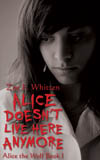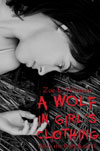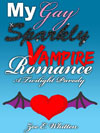You might think from some of my less favorable reviews that I love to complain about everything. And that…is probably true, but what I really want is something to gush at y’all about. I want something I love so much that in writing my review, I have to go back and edit it to reduce the length or cut out spoilers. After waiting so very long to play Horizon: Zero Dawn, I can happily report that this is something I love, and I must curb my enthusiasm or risk spoiling the story for you.
Before I cover anything else, let me just say, the story is easily the best part of this game. In most games, the story seems to be built around the game’s mechanics. Stories in those games feel like they came somewhere late to the development, like, “Okay, we’ve got all these other parts working…so, what’s the plot?” But Horizon: Zero Dawn feels more like the story was developed alongside the rest of the game. It also helps that most characters (with one glaring exception that I’ll talk about later) you interact with could be real people. They’re charming and funny, and I mean really funny, not Easter egg/pop culture reference funny. There were often times that I would laugh at a line, pause the game and relay it to hubby because the dialogue is so, so good. I would love to give you examples, but that’s spoiler territory, and I want you to play this game and experience all its charms for yourself.
I will at least have to do minor spoilers for the beginning of the game. The main character is Aloy, an orphan branded an outcast at birth and raised by Rost, another outcast. The start of the lengthy tutorial has you controlling Aloy as a young child of seven or maybe eight. During this sequence, she falls into a vault-like structure where ancient humans used to live and finds a Focus, essentially a personal computer with a holographic interface. Or in other words, this game’s version of Detective Mode/Enhanced senses.
And I’ll be honest here. Most of the game’s mechanics have all been staples of other games for a long time. Some reviews and gamers have complained about that. “Oh meh, we’ve seen and done all this before.” Well, with all due respect to those opinions, I don’t feel the same way. Yes, these mechanics are familiar, but that also means I don’t have to struggle to learn a new way to play. I’m almost instantly “at home” with these controls and mechanics, so I can get right into the two things that make this game so much fun, fighting stuff and watching the story unfold. Continue reading




